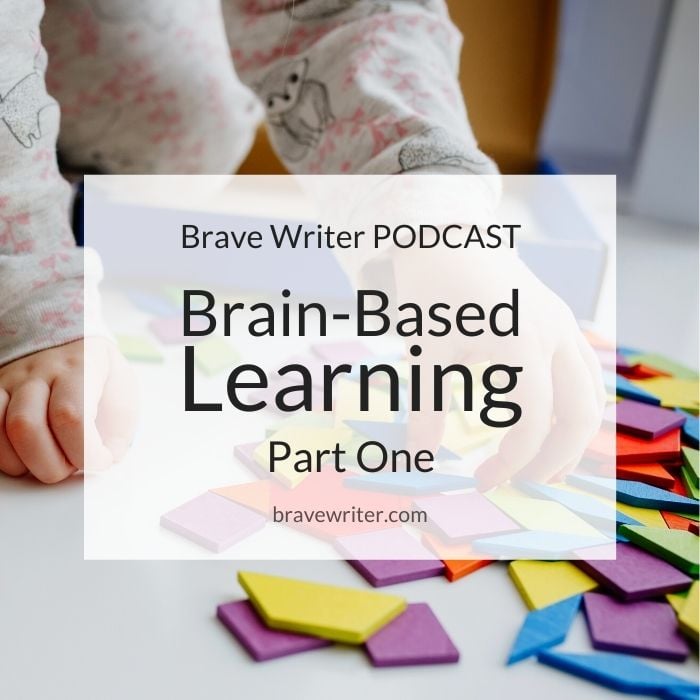Podcast: Brain-Based Learning Pt. 1

We bat around many concepts related to education as homeschoolers. We look for the perfect philosophy to bring a joy-filled, academically sound learning experience to our kids.
What causes the “aha!” to happen? How can we ensure our kids retain what they learn (not just master it for a moment)?
Brain research shows that there are specific properties that lead to the best kind of learning: making meaning for oneself. I talk about that research and the practices in this podcast (and part two is linked below). Please join me!
What’s actually happening in a student’s brain and why is understanding it important?
- The body and mind are deeply interconnected. Sometimes we refer to different learning styles, such as kinesthetic or visual learners, and this is giving a nod to the concept that learning comes through various portals in a person. So incorporating a child’s body isn’t just for fun – it’s good education!
- The brain is social. There is a Myth of Independence that all homeschooling parents are looking for; they want their kids to do work without help from them, and they believe that that is somehow a superior model.
- The search for meaning is innate. All kids innately want to create and find meaning, but you have to create meaning that they can understand at their level. You can’t tell a seven-year-old that studying his math will be helpful when he’s 18.
- The search for meaning occurs through patterning, which means you are creating interconnections and setting patterns of thought with everything you do throughout childhood. Our goal isn’t to tell our children our thoughts and ideas so that they assimilate them – we want to create opportunities for them to develop self-inquiry!
- Emotions are critical to patterning. Emotions are often the spark our brains need to ignite meaning.
- The brain processes parts and wholes simultaneously. For example: it’s impossible to learn to write if all you focus on is grammar and mechanics, as the point of writing is communicating what you have to say. But on the flip side, if you only learn to develop what you have to say, you’ll never be able to effectively communicate your thoughts through writing.
- Complex learning depends on relaxed alertness. Is it possible to learn when you’re under stress, being threatened with punishments, or being told you’ll never amount to anything? No! So when you see stress bubble up in your family, change the dynamic. Maybe go outside, or start an impromptu poetry teatime.
- Rigorous thinking Socratic method problem-based learning work is important. What does that mouthful mean? Our kids have a profound boost of intrinsic motivation when they are treated as a person who has something to say. So if we’re interested in our children’s thoughts, we will participate in their world… even if it’s a world that’s not interesting to us.
Also would you get the word out? I feel this is such important information for us as homeschoolers. Let’s haggle less over whether we “unschool” or “classically educate” and focus instead on the learning transaction. What does that look like and how can we see more of that happen? That’s what this episode is all about.
Brain-Based Learning Part Two
Would you please post a review on Apple Podcasts for us?
Help a homeschooler like you find more joy in the journey. Thanks!

















